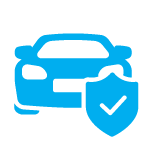If you are convicted of an alcohol or drug-related driving violation, your driver’s license or privilege to drive in New York State will be revoked or suspended. However, you may be eligible for a conditional license or a conditional driving privilege if you participate in New York State’s Drinking Driver Program (DDP). If you qualify for a conditional license or conditional driving privilege, you will be allowed to legally drive within certain limitations. It is critical to consult with a qualified New York DWI attorney following a drunk driving arrest.
Your “Order of Suspension or Revocation” (MV110.1L) from the Department of Motor Vehicles (DMV) will indicate a state or county motor vehicle office where you may enroll in the Drinking Driver Program. Bring your driver’s license or proof of identity with signature, and payment of the appropriate fees. If you are placed on probation because of this conviction, you also must bring written permission from the sentencing court, or your probation officer, that allows you to apply for a license.
About the Program
The Drinking Driver Program is part of New York State’s effort to reduce the personal and property losses caused by drivers under the influence of alcohol and/or drugs.
The DDP helps the participants examine the arrest experience and the reason for their arrest. It also helps them learn to make appropriate driving decisions for the future. During the DDP introductory session, participants are asked to consider the reasons and goals of the program and its requirements for completion. Under the guidance of the director and staff, the participants discuss the social, medical, legal, and driver safety problems caused by alcohol and other drug abuse. The program includes classroom education, screening, and evaluation, and treatment if warranted.
Classroom Phase
As a DDP participant, you must attend all seven weekly classroom sessions. Each session takes 2 to 3 hours, for 16 hours total. When you satisfactorily complete the classroom sessions, your involvement in the DDP will end, UNLESS the program refers you for formal evaluation and any resulting treatment.
Screening and Referral
Some DDP participants are referred from the classroom phase for formal substance abuse evaluation. A referral can result from:
- the results of a written self-inventory.
- two or more alcohol or drug-related driving convictions within 10 years.
- an arrest for an alcohol or drug-related driving violation while enrolled in the DDP.
- attending class under the influence of alcohol or drugs.
- a request by the student for help with a substance abuse problem, or an admission that the student is currently in treatment.
If you are referred for evaluation, you may choose a provider from a list supplied by the DDP. If you are not satisfied with the results of the evaluation, you may contact the DDP director and request a second evaluation. However, you must accept the findings of the second evaluation. After evaluation, you may be required to complete a formal substance abuse treatment program.
Completion
You will receive a “Notice of Completion” (MV-2026) when you have completed all the requirements of the Drinking Driver Program. A copy of your completion notice will be sent to the DMV. Then, depending on your license status and driving record, your license will be restored or you will be eligible to apply for a new license. You may not be allowed to apply right away if:
- your conditional license is under revocation;
- you were under 21 when the alcohol or drug-related driving violation occurred;
- you refused an alcohol or drug test on the date of the violation;
- you committed the alcohol or drug-related violation while operating a commercial motor vehicle;
Where and When You May Drive
A conditional license generally is not valid for driving a taxicab or any motor vehicle that requires the driver to have a Commercial Driver License (CDL). In certain situations, a conditional license may be issued to the holder of a CDL or a Class E license:
- to and from work, and during work if driving is part of your job;
- to and from a class at an accredited school or college;
- to transport your child to and from a child care facility or school when necessary to maintain your employment or your enrollment in an accredited school or college;
- to and from DDP classes and any required evaluation or treatment;
- to and from a state or county motor vehicle office for business related to your conditional license;
- to and from court-ordered probation activities;
- to and from medical examinations or treatment for you or a member of your family, as certified in writing by a physician;
- during the three-hour weekly period listed on your conditional license attachment;
If your job or school changes location, you must immediately notify the DMV. To do this, complete a “Conditional License-Privilege Attachment” (MV-2020, available at most motor vehicle offices), and submit it to a state or county motor vehicle office.
Conditional License Revocation
Your conditional license will be revoked if you are convicted of violating any condition listed above, or of any moving violation. After the conditional license is revoked, you may continue to attend the Drinking Driver Program, but you may not drive under any circumstances. If you are over 21 years old and complete the program without additional convictions, your full license will be restored at the end of the program. If you are under 21 and your conditional license is revoked, you must serve a one-year revocation even if you complete the DDP.
Your conditional license also will be revoked if you are convicted or found guilty of any additional alcohol or drug-related violation, or any other violation or incident that usually results in license revocation. If your conditional license is revoked for any of these reasons, you may continue to participate in the DDP without driving, but you will not be re-licensed immediately after you complete the program. The DMV will consider your re-licensing only after you have completed the DDP and have served any required revocation period. You must turn in the revoked conditional license to a state or county motor vehicle office to receive credit toward the revocation period.
If you are dropped from the Drinking Driver Program, your conditional license will be revoked. If this occurs, your original license suspension or revocation will be reinstated for its full length. You must turn in your conditional license immediately upon receiving a revocation order. If you wait, your return to full license status may be delayed.





